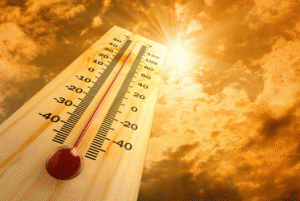 Heat gain is the amount of excess heat your home gains throughout the day. Left unchecked, it can cause your cooling costs to soar. But by keeping heat gain to a minimum, your air conditioner can cool your home more efficiently and keep your utility bills within reason. Let’s look at some of the causes of heat gain.
Heat gain is the amount of excess heat your home gains throughout the day. Left unchecked, it can cause your cooling costs to soar. But by keeping heat gain to a minimum, your air conditioner can cool your home more efficiently and keep your utility bills within reason. Let’s look at some of the causes of heat gain.
Donald P. Dick Air Conditioning Blog: Posts Tagged ‘air leaks’
What Homeowners Need to Know About Heat Gain
Thursday, August 6th, 2015Don’t Be Fooled by These Insulation Myths
Thursday, July 9th, 2015Have a Pro Test for Disconnected Heating Ducts in Your Home
Thursday, February 5th, 2015The ductwork in your home HVAC system is carefully designed and balanced to deliver just the right amount of air to all your rooms – at least, it should be. But the fact is that not all ductwork is correctly installed, and even when it is, years of use can lead to leaks and damage in your ducts. Disconnected heating ducts can result in a lot of energy use and a decline in home comfort, so it’s a good idea to have your ducts inspected for leakage.
Cut Your Winter Heating Bills with These Helpful Tips
Thursday, January 29th, 2015 In order to cut your winter heating bills, you need to take a look at your entire home and develop a plan to help make it more energy efficient. There are plenty of ways you can cut your utility bills, but they may be expensive, such as replacing old windows with new ones, or having spray-on insulation installed in your attic.
In order to cut your winter heating bills, you need to take a look at your entire home and develop a plan to help make it more energy efficient. There are plenty of ways you can cut your utility bills, but they may be expensive, such as replacing old windows with new ones, or having spray-on insulation installed in your attic.
How to Repair Torn Duct Insulation in Your Home
Tuesday, January 20th, 2015Your ductwork system carries conditioned air throughout your home to maintain your desired comfort level. Any areas where insulation is torn can affect the efficiency of your furnace system, making your furnace work harder. This equates to higher energy costs and lower efficiency. And during the warmer season, moisture condensation buildup can actually damage the duct system itself.
If Conserving Energy Is a Concern, Follow These Tips for Changing Your Ways
Tuesday, July 15th, 2014 We’re all hearing a lot about conserving energy lately, and many people, including homeowners in the San Joaquin Valley, are trying to devise strategies for conserving energy that will save both money and the environment. With lots of conflicting information, it can be challenging to figure out how to change your lifestyle. If you’re concerned about conserving energy, here are some tips to help get you started:
We’re all hearing a lot about conserving energy lately, and many people, including homeowners in the San Joaquin Valley, are trying to devise strategies for conserving energy that will save both money and the environment. With lots of conflicting information, it can be challenging to figure out how to change your lifestyle. If you’re concerned about conserving energy, here are some tips to help get you started:
Air Leaks Hurt Your Home’s HVAC System: Learn How to Locate a Leak
Tuesday, May 20th, 2014 Air leaks can threaten the air quality in your home, as well as raising your energy bills. Unfortunately, they’re all too common. Fixing leaks is usually fairly simple, but finding them can be a challenge.
Air leaks can threaten the air quality in your home, as well as raising your energy bills. Unfortunately, they’re all too common. Fixing leaks is usually fairly simple, but finding them can be a challenge.
Tight Ducts Are a Winning Tactic for Lowering Your Energy Bills
Tuesday, March 11th, 2014 In most contemporary homes, approximately 20 percent of the conditioned air flowing through ductwork is lost through holes, leaks and poor duct connections. Inefficient air delivery in your Fresno-area home can lead to uncomfortable indoor temperatures and higher energy bills. Ensure your home has tight ducts for increased comfort at home and in your wallet.
In most contemporary homes, approximately 20 percent of the conditioned air flowing through ductwork is lost through holes, leaks and poor duct connections. Inefficient air delivery in your Fresno-area home can lead to uncomfortable indoor temperatures and higher energy bills. Ensure your home has tight ducts for increased comfort at home and in your wallet.
Giving Your Overworked Air Conditioner a Needed Assist
Thursday, August 22nd, 2013 Given our summer heat, an overworked air conditioner is hardly a rare thing in our region. Besides wearing out your equipment, sky-high cooling bills can put quite a dent in your budget. These tips can help you reduce the amount of energy your cooling system uses without sacrificing any indoor comfort.
Given our summer heat, an overworked air conditioner is hardly a rare thing in our region. Besides wearing out your equipment, sky-high cooling bills can put quite a dent in your budget. These tips can help you reduce the amount of energy your cooling system uses without sacrificing any indoor comfort.
Your Home Energy Evaluation: Why The Blower Door Test Is A Key Component
Tuesday, January 15th, 2013 You may have performed a do-it-yourself home energy evaluation in an attempt to seal air leaks that allow valuable conditioned air to escape from your home. If you have: Congrats! An airtight home creates lower heating and cooling loads, resulting in lower energy bills year-round. DIY jobs, however, generally don’t offer the same results that a professional home energy evaluation can. Namely, a pro utilizes a blower door test, which is considered the best tool to comprehensively measure a home’s leakage and locate those areas where air is leaking.
You may have performed a do-it-yourself home energy evaluation in an attempt to seal air leaks that allow valuable conditioned air to escape from your home. If you have: Congrats! An airtight home creates lower heating and cooling loads, resulting in lower energy bills year-round. DIY jobs, however, generally don’t offer the same results that a professional home energy evaluation can. Namely, a pro utilizes a blower door test, which is considered the best tool to comprehensively measure a home’s leakage and locate those areas where air is leaking.

 Not just for winter, insulation also holds off the intense Fresno summer heat. Avoiding some common misconceptions about this material will help you weatherize your home more efficiently.
Not just for winter, insulation also holds off the intense Fresno summer heat. Avoiding some common misconceptions about this material will help you weatherize your home more efficiently.